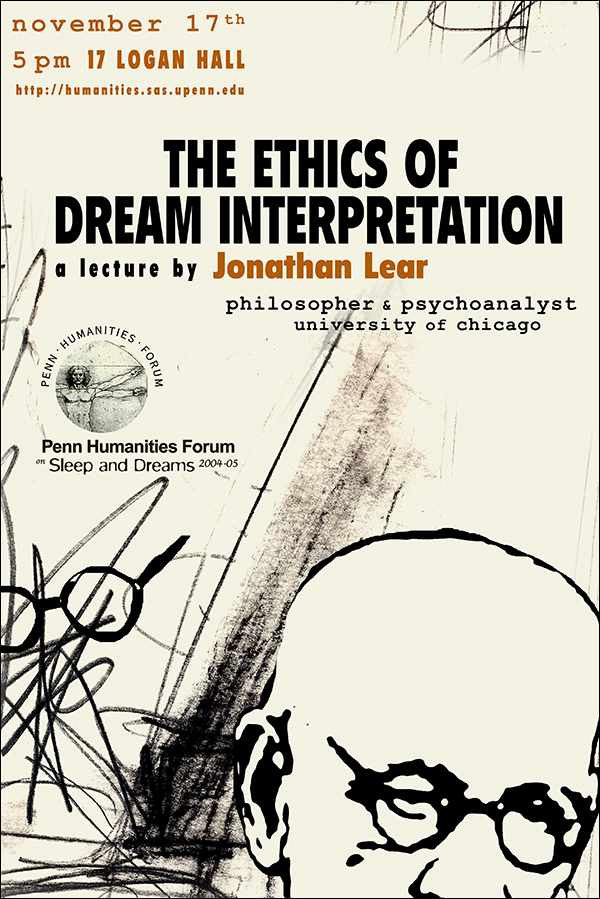Award-winning University of Chicago philosopher and psychoanalyst Jonathan Lear discusses the ethical dimension of Freud’s theory of dreams. What is the enduring significance of Freudian dream interpretation? How well did the Viennese theorist understand the ethical implications of his approach?
Jonathan Lear's work at the intersection of philosophy and psychoanalysis has helped renew Freud's reputation as a philosopher. Lear graduated Yale, studied at University of Cambridge in England, and took his PhD from Rockefeller University before training as an analyst at Western New England Institute for Psychoanalysis. Before joining the University of Chicago faculty in 1996, he was the Kingman Brewster Professor of the Humanities at Yale University.
Prof. Lear is a three-time winner of the Gradiva Award from the National Association for Psychoanalysis for his books Happiness, Death and the Remainder of Life (2000), and Open Minded: Working Out the Logic of the Soul (1998), and for his article "The shrink is in" (The New Republic, December 25, 1995).
Other works include Therapeutic Action: An Earnest Plea for Irony (2003), Love and its Place in Nature (1990), Aristotle: The Desire to Understand (1988), Aristotle and Logical Theory (1980), and numerous articles on psychoanalysis and philosophy. He is currently writing a book on Freud to be published as part of the Routledge Philosophers Series.
The Ethics of Dream Interpretation
November 17, 2004 (Wednesday) / 5:00 pm
17 Logan Hall, 249 South 36th Street



